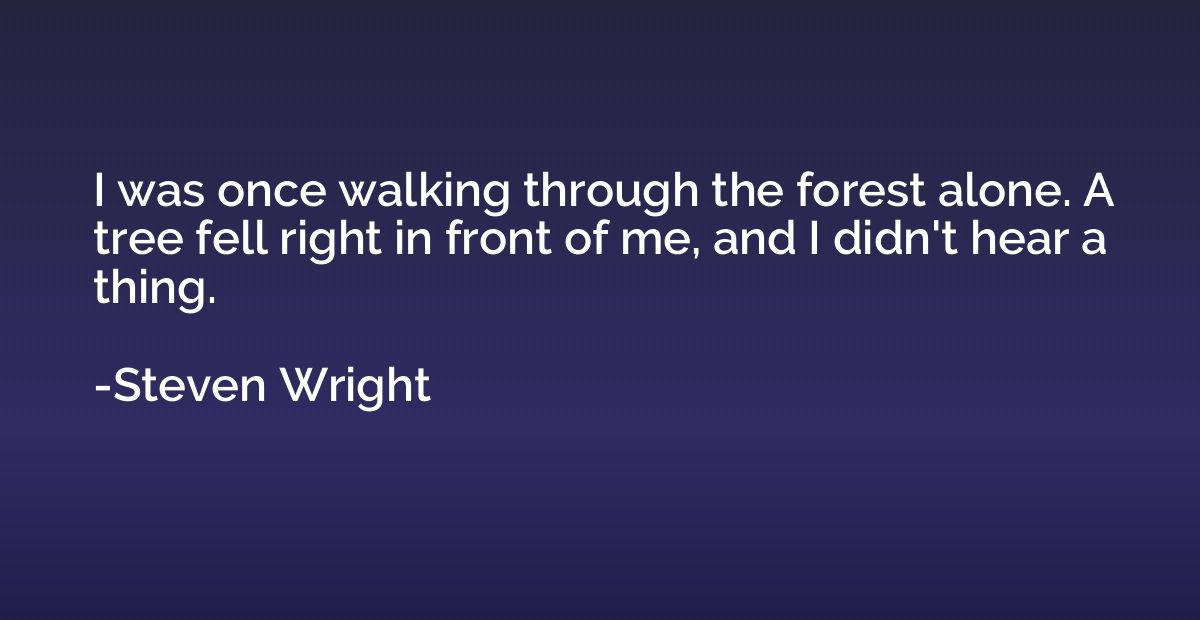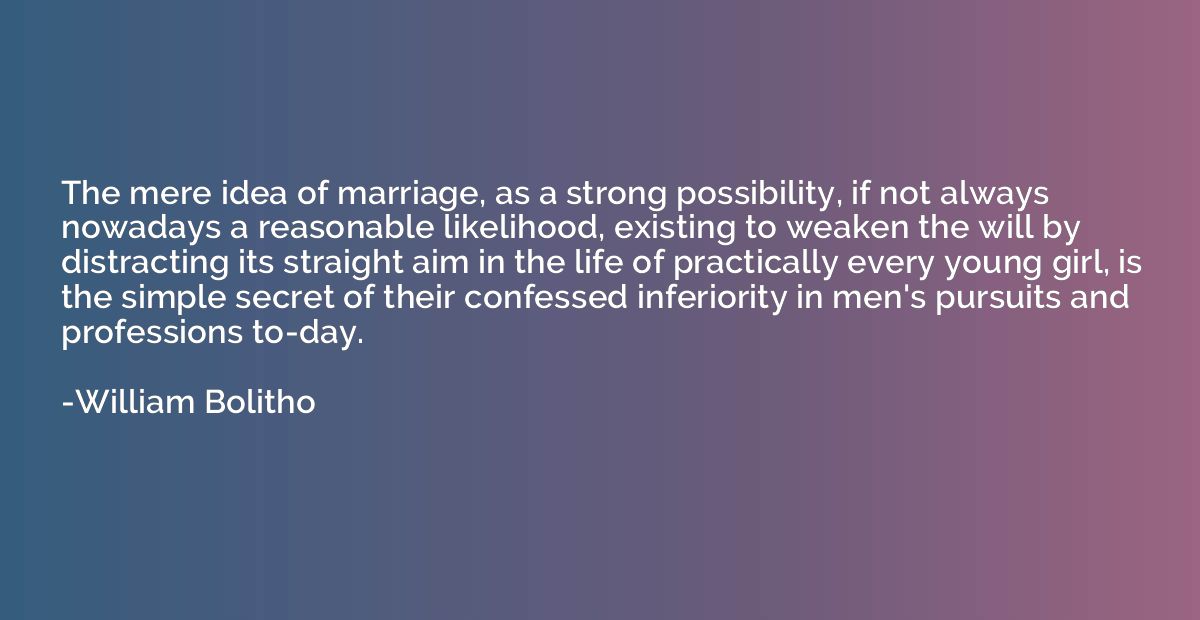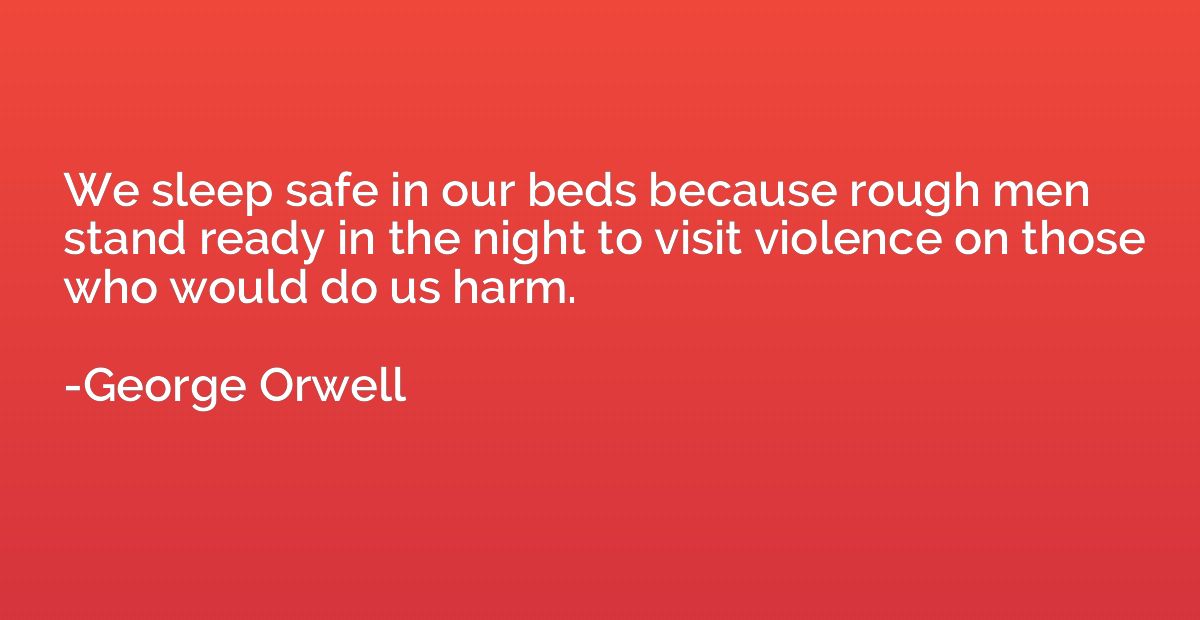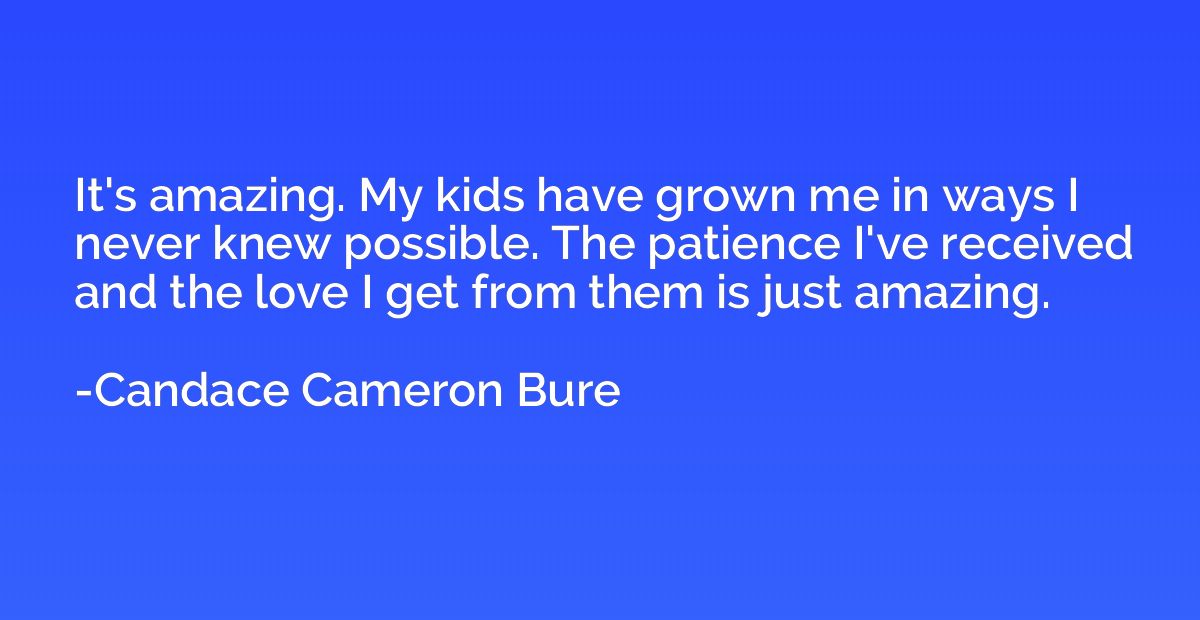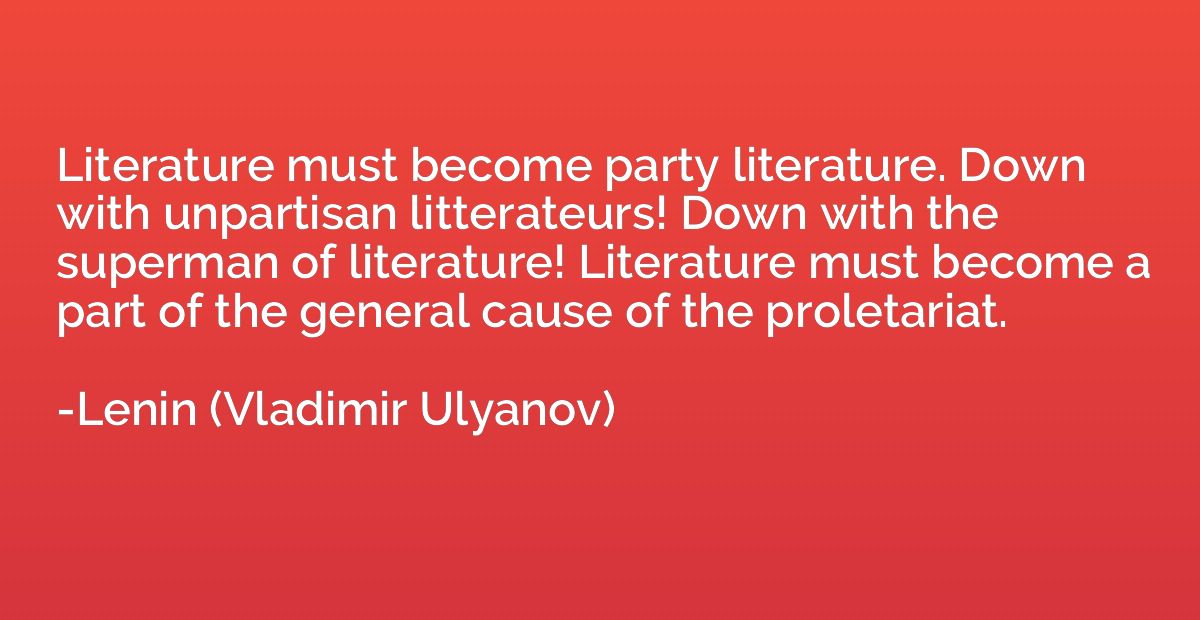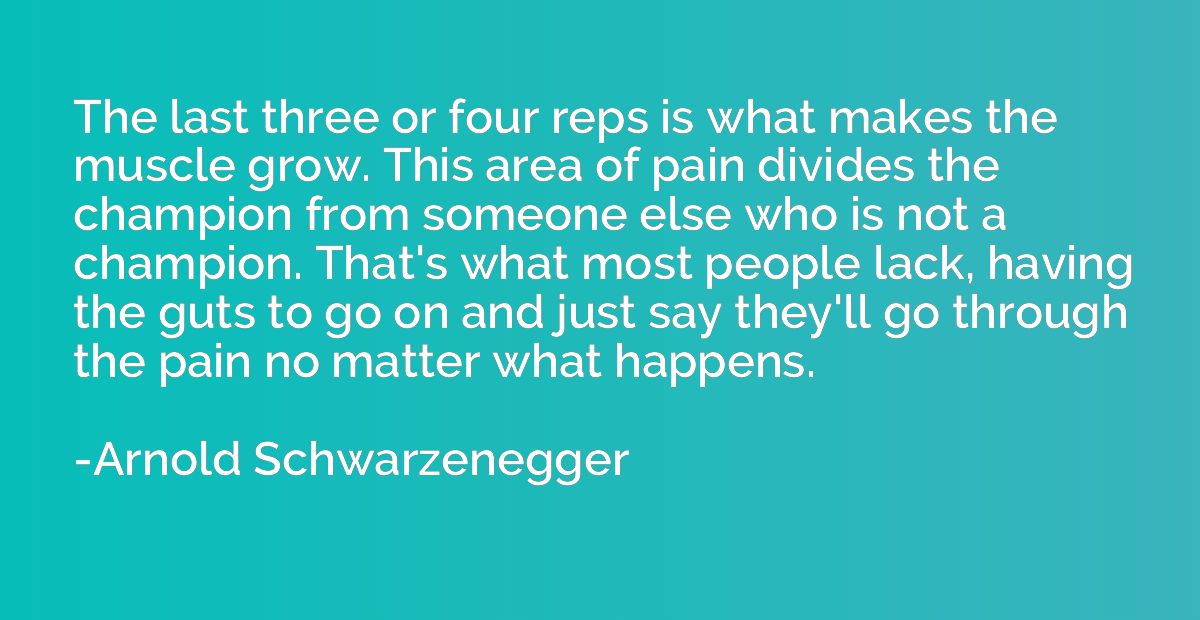Quote by Victor Hugo
He left her. She was dissatisfied with him. He had preferred to incur her anger rather than cause her pain. He had kept all the pain for himself.
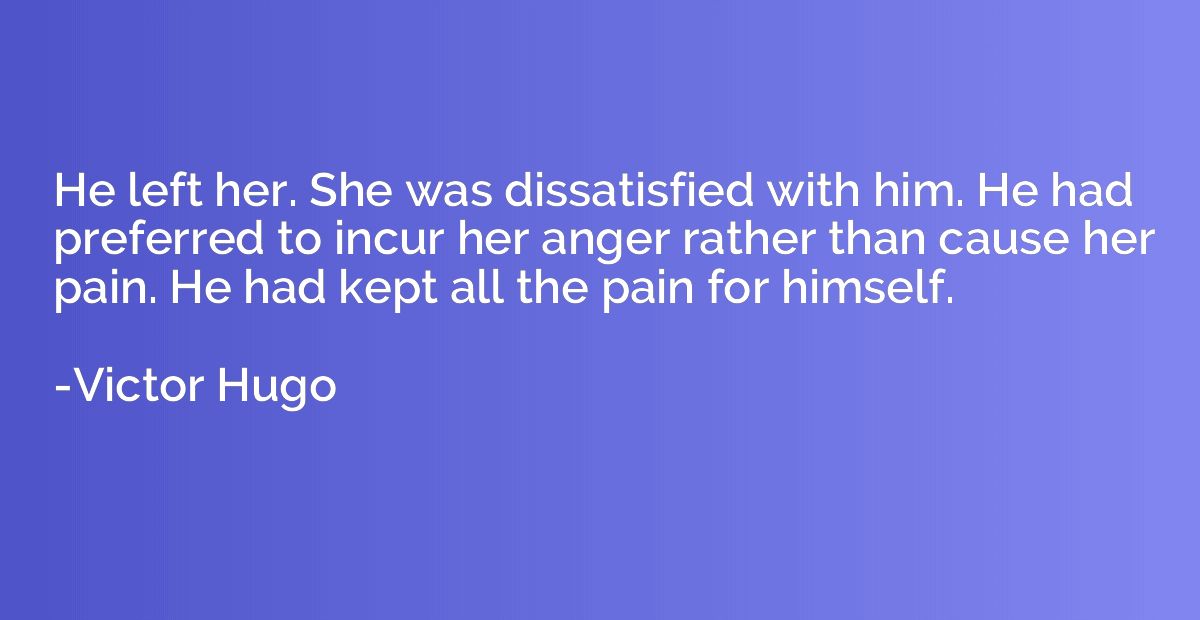
Summary
This quote expresses a situation where a person decided to end a relationship because they believed it was better to face the anger and disappointment of their partner rather than continuing to cause them pain. Despite their own dissatisfaction, they chose to shoulder the burden of emotional suffering alone, prioritizing the well-being of their partner over their own. It highlights the selflessness and sacrifice made by the person who left, emphasizing their willingness to absorb the negative emotions in order to protect their loved one.
Topics
Pain
By Victor Hugo




